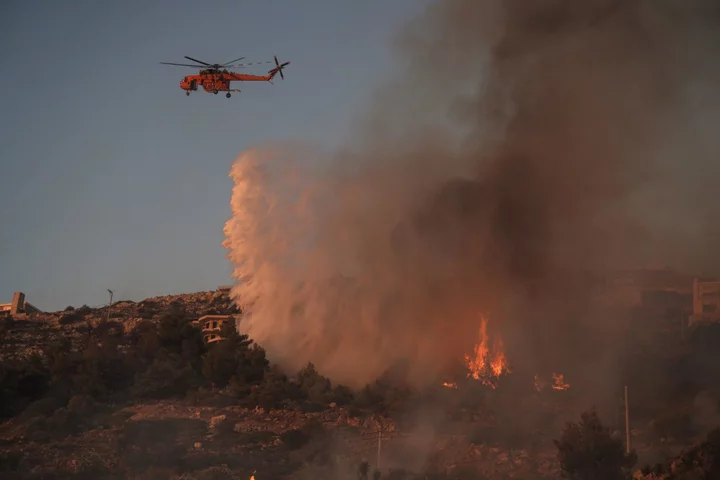State agencies are warning people not to eat mountain whitefish caught in the Yellowstone River in the area where a train carrying chemicals went off the tracks in June, according to the Montana Department of Fish, Wildlife and Parks.
The department's staff collected five mountain whitefish and five rainbow trout below the derailment site for contaminant testing as a followup to the incident that occurred on June 24, a news release stated.
The derailment caused a bridge over the Yellowstone River to collapse, sending several cars into the water, Stillwater County officials said in June.
Montana Rail Link said damaged rail cars had "molten sulfur and asphalt" on board, CNN previously reported.
Two cars carrying sodium hydrogen sulfate were part of the derailment, but neither landed in the river, "and initial air quality assessments have been performed and confirmed that there is no release event associated with those two cars," the railroad said at the time.
But testing results of the mountain whitefish "showed levels of a chemical called phenanthrene high enough to warrant an advisory to avoid all consumption of mountain whitefish," officials said Friday.
Phenanthrene is part of a group of chemicals called polycyclic aromatic hydrocarbons, or PAH, according to the Montana Department of Fish, Wildlife and Parks.
PAHs are found in oil, gas, plastics and pesticides, and are created when these products combust, the department said.
However, the specific source of the phenanthrene found in the mountain whitefish and whether it was a result of the derailment is not yet known, according to officials.
PAHs occur naturally in the environment, especially in the shale rock commonly found in the Yellowstone River Basin, according to the release.
The Fish Consumption Advisory Board "has issued an initial consumption advisory on all mountain whitefish caught in the Yellowstone River from Twin Bridges Road railroad bridge to Laurel," the release read. "Further testing is needed to determine the contamination source and long-term guidance."
The FWP said rainbow trout collected in the area did not show contamination levels and that no other species of fish, including brown trout, were collected for testing.
"Additional fisheries testing will be conducted in the area later this week," the release read. "Fish will be collected above and below the derailment site."
The department advised that people with specific concerns should avoid eating any fish species from the Yellowstone River in the area until more is known about the contamination's severity and prevalence.
"The agencies will alert the public as soon as this information is available," the release stated.









